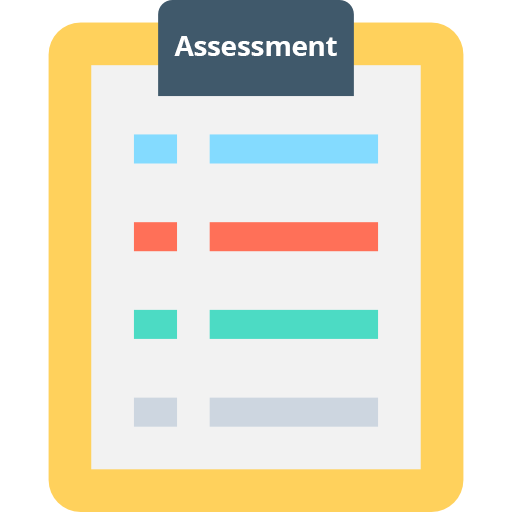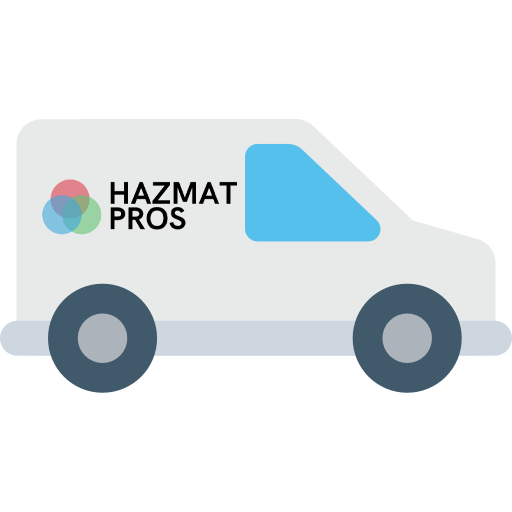Why Hazmat Pros?
Hazmat Pros is a Dallas based Hazmat cleaning service provider with extensive experience working in both commercial and residential applications. Our expert team has experience with disinfecting services and various cleaning services, which requires industry expertise and knowledge.
We Serve
Residential
Commercial
Churches
Retail Locations
Healthcare Facilities
Government Buildings
Few facts about
Coronavirus (Covid-19)
What is a coronavirus?
What is COVID-19?
What are the symptoms of COVID-19?
What should I do if I have COVID-19 symptoms and when should I seek medical care?
However, if you live in an area with malaria or dengue fever it is important that you do not ignore symptoms of fever. Seek medical help. When you attend the health facility wear a mask if possible, keep at least 1 metre distance from other people and do not touch surfaces with your hands. If it is a child who is sick help the child stick to this advice.
Seek immediate medical care if you have difficulty breathing or pain/pressure in the chest. If possible, call your health care provider in advance, so he/she can direct you to the right health facility.
How does COVID-19 spread?
WHO is assessing ongoing research on the ways that COVID-19 is spread and will continue to share updated findings.
Can COVID-19 be caught from a person who has no symptoms?
Some reports have indicated that people with no symptoms can transmit the virus. It is not yet known how often it happens. WHO is assessing ongoing research on the topic and will continue to share updated findings.
How can we protect others and ourselves if we don't know who is infected?
When possible maintain at least a 1 metre (3 feet) distance between yourself and others. This is especially important if you are standing by someone who is coughing or sneezing. Since some infected persons may not yet be exhibiting symptoms or their symptoms may be mild, maintaining a physical distance with everyone is a good idea if you are in an area where COVID-19 is circulating.
What should I do if I have come in close contact with someone who has COVID-19?
Close contact means that you live with or have been in settings of less than 1 metre from those who have the disease. In these cases, it is best to stay at home.
However, if you live in an area with malaria or dengue fever it is important that you do not ignore symptoms of fever. Seek medical help. When you attend the health facility wear a mask if possible, keep at least 1 metre distant from other people and do not touch surfaces with your hands. If it is a child who is sick help the child stick to this advice.
If you do not live in an area with malaria or dengue fever please do the following:
If you become ill, even with very mild symptoms you must self-isolate
Even if you don’t think you have been exposed to COVID-19 but develop symptoms, then self-isolate and monitor yourself
You are more likely to infect others in the early stages of the disease when you just have mild symptoms, therefore early self-isolation is very important.
If you do not have symptoms, but have been exposed to an infected person, self-quarantine for 14 days.
If you have definitely had COVID-19 (confirmed by a test) self-isolate for 14 days even after symptoms have disappeared as a precautionary measure – it is not yet known exactly how long people remain infectious after they have recovered. Follow national advice on self-isolation.
What does it mean to self-isolate?
Self-isolation is when a person who is experiencing fever, cough or other COVID-19 symptoms stays at home and does not go to work, school or public places. This can be voluntarily or based on his/her health care provider’s recommendation. However, if you live in an area with malaria or dengue fever it is important that you do not ignore symptoms of fever. Seek medical help. When you attend the health facility wear a mask if possible, keep at least 1 metre distant from other people and do not touch surfaces with your hands. If it is a child who is sick help the child stick to this advice.
If you do not live in an area with malaria or dengue fever please do the following:
– If a person is in self-isolation, it is because he/she is ill but not severely ill (requiring medical attention)
have a large, well-ventilated with hand-hygiene and toilet facilities
If this is not possible, place beds at least 1 metre apart
Keep at least 1 metre (3 feet) from others, even from your family members
Monitor your symptoms daily
Isolate for 14 days, even if you feel healthy
If you develop difficulty breathing, contact your healthcare provider immediately – call them first if possible
Stay positive and energized by keeping in touch with loved ones by phone or online, and by exercising yourself at home.
What should I do if I have no symptoms, but I think I have been exposed to COVID-19? What does it mean to self-quarantine?
In this case:
Have a large, well-ventilated single room with hand hygiene and toilet facilities
If this is not available place beds at least 1 metre apart.
Keep at least 1-metre distance from others, even from your family members.
Monitor your symptoms daily
Self-quarantine for 14 days, even if you feel healthy
If you develop difficulty breathing, contact your healthcare provider immediately – call them first if possible.
Stay positive and energized by keeping in touch with loved ones by phone or online, and by exercising yourself at home.
However, if you live in an area with malaria or dengue fever it is important that you do not ignore symptoms of fever. Seek medical help. When you attend the health facility wear a mask if possible, keep at least 1 metre distant from other people and do not touch surfaces with your hands. If it is a child who is sick help the child stick to this advice.
What is the difference between self-isolation, self-quarantine and distancing?
Isolation means separating people who are ill with symptoms of COVID-19 and may be infectious to prevent the spread of the disease.
Physical distancing means being physically apart. WHO recommends keeping at least 1-metre (3 feet) distance from others. This is a general measure that everyone should take even if they are well with no known exposure to COVID-19.
Can children or adolescents catch COVID-19?
Evidence to date suggests that children and young adults are less likely to get severe disease, but severe cases can still happen in these age groups.
Children and adults should follow the same guidance on self-quarantine and self-isolation if there is a risk they have been exposed or are showing symptoms. It is particularly important that children avoid contact with older people and others who are at risk of more severe disease.
What can I do to protect myself and prevent the spread of disease?
You can reduce your chances of being infected or spreading COVID-19 by taking some simple precautions:
Regularly and thoroughly clean your hands with an alcohol-based hand rub or wash them with soap and water. Why? Washing your hands with soap and water or using alcohol-based hand rub kills viruses that may be on your hands.
Maintain at least 1 metre (3 feet) distance between yourself and others. Why? When someone coughs, sneezes, or speaks they spray small liquid droplets from their nose or mouth which may contain virus. If you are too close, you can breathe in the droplets, including the COVID-19 virus if the person has the disease.
Avoid going to crowded places. Why? Where people come together in crowds, you are more likely to come into close contact with someone that has COIVD-19 and it is more difficult to maintain physical distance of 1 metre (3 feet).
Avoid touching eyes, nose and mouth. Why? Hands touch many surfaces and can pick up viruses. Once contaminated, hands can transfer the virus to your eyes, nose or mouth. From there, the virus can enter your body and infect you.
Make sure you, and the people around you, follow good respiratory hygiene. This means covering your mouth and nose with your bent elbow or tissue when you cough or sneeze. Then dispose of the used tissue immediately and wash your hands. Why? Droplets spread virus. By following good respiratory hygiene, you protect the people around you from viruses such as cold, flu and COVID-19.
Stay home and self-isolate even with minor symptoms such as cough, headache, mild fever, until you recover. Have someone bring you supplies. If you need to leave your house, wear a mask to avoid infecting others. Why? Avoiding contact with others will protect them from possible COVID-19 and other viruses.
If you have a fever, cough and difficulty breathing, seek medical attention, but call by telephone in advance if possible and follow the directions of your local health authority. Why? National and local authorities will have the most up to date information on the situation in your area. Calling in advance will allow your health care provider to quickly direct you to the right health facility. This will also protect you and help prevent spread of viruses and other infections.
Keep up to date on the latest information from trusted sources, such as WHO or your local and national health authorities. Why? Local and national authorities are best placed to advise on what people in your area should be doing to protect themselves.
Is there a vaccine, drug or treatment for COVID-19?
Possible vaccines and some specific drug treatments are currently under investigation. They are being tested through clinical trials. WHO is coordinating efforts to develop vaccines and medicines to prevent and treat COVID-19.
The most effective ways to protect yourself and others against COVID-19 are to:
Clean your hands frequently and thoroughly
Avoid touching your eyes, mouth and nose
Cover your cough with the bend of elbow or tissue. If a tissue is used, discard it immediately and wash your hands.
Maintain a distance of at least 1 metre (3 feet) from others.
How long does it take after exposure to COVID-19 to develop symptoms?
What is the connection between COVID-19 and animals?
We already know a lot about other viruses in the coronavirus family and most of these types of viruses have an origin in animals. The COVID-19 virus (also called SARS-CoV-2) is a new virus in humans. The possible animal source of COVID-19 has not yet been confirmed but research is ongoing.
WHO continues to monitor the latest research on this and other COVID-19 topics and will update, as new findings are available.
Can I catch COVID-19 from my pet?
It is still recommended that people who are sick with COVID-19 and people who are at risk limit contact with companion and other animals. When handling and caring for animals, basic hygiene measures should always be implemented. This includes hand washing after handling animals, their food, or supplies, as well as avoiding kissing, licking or sharing food.
More recommendations are available on the OIE website : https://www.oie.int/en/scientific-expertise/specific-information-and-recommendations/questions-and-answers-on-2019novel-coronavirus/
WHO continues to monitor the latest research on this and other COVID-19 topics and will update as new findings are available
How long does the virus survive on surfaces?
As, always clean your hands with an alcohol-based hand rub or wash them with soap and water. Avoid touching your eyes, mouth, or nose.
How to grocery shop safely?
There is currently no confirmed case of COVID-19 transmitted through food or food packaging.
How to wash fruits and vegetables?
Are antibiotics effective in preventing or treating COVID-19?
Can I catch COVID-19 from the faeces of someone with the disease?
WHO is assessing ongoing research on the ways COVID-19 is spread and will continue to share new findings on this topic.
Dallas’s #1 Hazmat cleaning service
Our Process
Our experienced and certified technicians are available around the clock, no matter the service or location, we can give an assessment free of charge prior to starting the project. Typically, all services provided by us are covered under renters or homeowners insurance policies. To ensure your service is covered, we can work directly with your insurance provider to find more details.

Schedule

Assessment
Once we receive your information, we will set up a time to come visit the location in person to determine and assess the situation to better serve you.

Proposal
Our expert service technicians will provide you with a detailed written proposal for the project at hand.

Start Project
Once the proposal is approved, we will deploy a team of experts to remedy the situation
